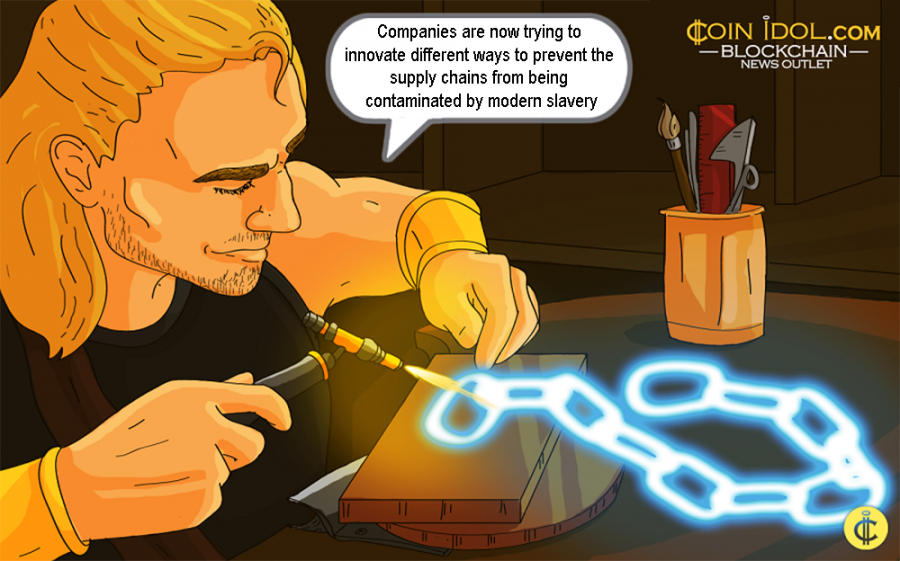Blockchain to Combat Modern Slavery in Supply Chains
Updated: Jul 21, 2020 at 21:04

In an effort to fight modern slavery in supply chains, major companies are exploring and experimenting with blockchain and distributed ledger technology (DLT). Ascertaining whether products especially minerals including cobalt, gold, copper, etc., are obtained and produced decently is very hard when it comes to supply chains since it is a complex process.
For instance, there are a lot of middlemen involved in the cobalt supply chain, these middlemen purchase and mix cobalt that has been mined in different mining places, hence making it hard for buyers including battery manufacturers to effectively trace where the mineral exactly is sourced from.
Abolishing Slave Labor in Congo Using Distributed Ledger
Around 2/3 of the cobalt mined globally comes from the DRC (Democratic Republic of Congo), in Africa, a country that uses slave laborers to participate in the mining of major minerals. Cobalt is being used in many devices that use batteries, for instance, laptops, phones, electric cars, watches, radios and many others. This does not only apply to cobalt but also to other products stretching from gold to fish (such as tuna) to copper to cocoa. It is difficult to identify how products are produced or where exactly they are obtained from.
However, companies are now trying to innovate different ways to prevent supply chains from being contaminated by modern slavery. One of the best ways to combat this inhuman act is by the use of blockchain. Blockchain technology can help combat modern and digital slavery and other kinds of illicit activities. But how can this be done?
Imagine the blockchain technology as an online public ledger. The moment a certain transaction is carried out, a permanent and immutable record of that particular transaction is formed and it needs to be authenticated by another party participating in the network. In this case, the records are known as “blocks” chained together in chronological and sequential order.
Therefore, blockchain and distributed ledger have the potential to create a secure, certified, unchangeable and tamper-proof record of supply chains directly from the source point of the product straight to the final consumer.
Combating Counterfeiting
Some companies such as BHP have started using blockchain to verify and validate copper supplies. However, as we know, the cobalt industry is not the only one where blockchain can help. The technology is also applied in combating counterfeits, tracing and tracking of various products such as cotton, coffee beans, textile & fashion, food & fruits, vegetables, wines, and others.
As Coinidol revealed, BMW,
Ford Motors and IBM are working on a big project of using blockchain to oversee cobalt supplies, right away from where they are mined to where are being used in making batteries. Legally mined cobalt will be properly recorded in the blockchain network and closely tracked as it passes through the supply chain.
BMW, in partnership with United Kingdom-based startup Circulor, are considering installing the globe’s top fintech for blockchain into BMW’s daily businesses. The project aims at verifying that batteries manufactured by
BMW particularly for electric vehicles contain 100% clean cobalt.
The high demand for cobalt will eventually make battery manufacturing companies want to buy an ethically mined cobalt and this can be properly done using blockchain technology.
Source text: https://it.coinidol.com/blockchain-combattere-rifornimento/
Price
News
Price
News
Price

(0 comments)